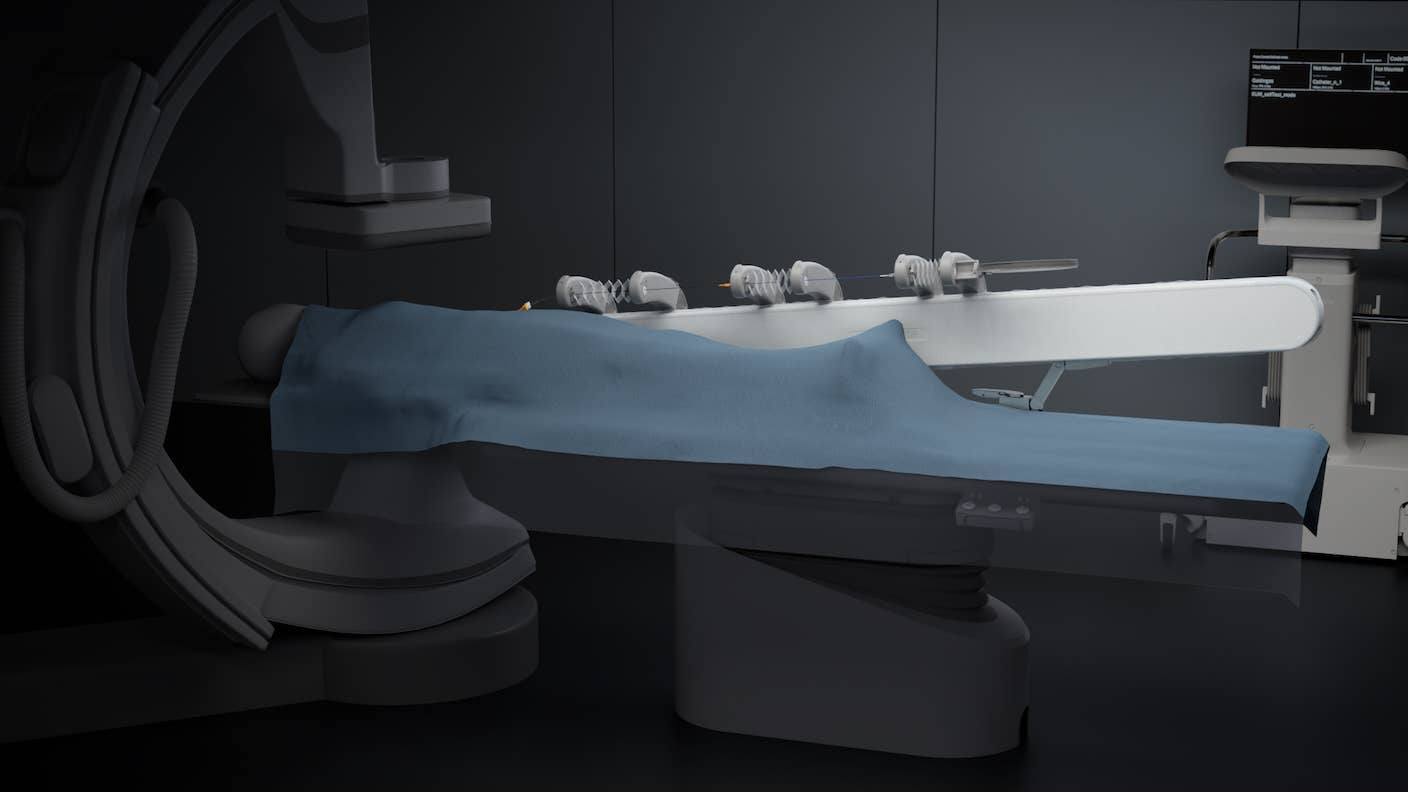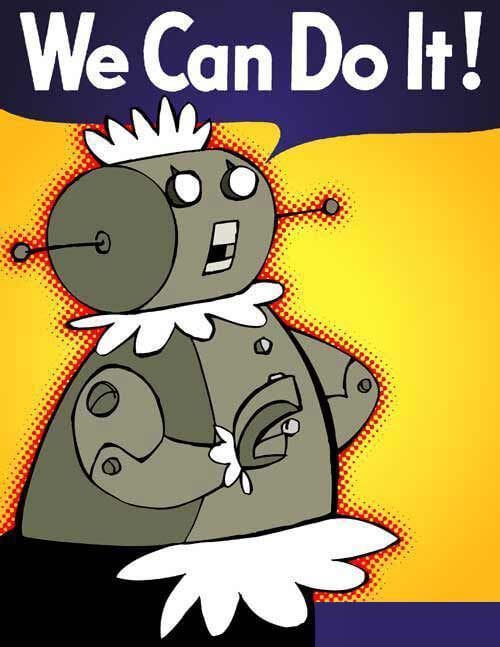A Robot Stole My Job: Automation in the Recession

Share
Are robots creating a jobless recovery? A recent forecast by the UCLA Anderson School of Business echoes a common refrain in economic circles: as the economy recovers, jobs might not. The report, released last week, expects that the nation’s GDP will continue to pick up steam next year, but that unemployment will likely remain above 9% for most of 2011. Among their reasons for slow job growth? Automation.
During recessions, industries look for ways to cut expenses and boost efficiency – and one way to do that is by replacing workers with automation. Once the economy begins to recover, many workers – particularly in manufacturing sectors – find their jobs have been replaced by robots. Jobs that aren’t lost directly to US automation are lost to overseas competition, both from foreign workers and (you guessed it) foreign robots. This mostly impacts blue collar workers, who cannot easily shift into growing industries like technology or biomed.
Edward Leamer, the director of the forecast, told the LA Times: “If you have nothing to offer the job market that cannot be supplied better and cheaper by Robots, Far-away Foreigners, Recent Immigrants or Microprocessors, expect it to be exceedingly difficult to find the job to which you aspire, and plan on doing low-wage service work at the end of a long and painful road of diminished aspirations, no matter what your diploma may suggest.” Not exactly a beacon of hope, Leamer.
The prospect of jobless recovery is supported by two recent trends, pointed out by Leamer: first, that the GDP has been recovering without much relief for the unemployed, and second, that as companies work to maximize efficiency, workers are getting fewer hours. As companies learn to “do more with less,” they don’t need so much labor. The suggestions of the UCLA report provide a timely perspective on a long-running debate: how will the ever-increasing automation of labor impact the domestic or global economy? It’s been a perennial topic here at the Hub, and the arguments range from utopian to downright bleak.
As we covered back in June, the Robotics Industries Association (RIA) sees itself as creating jobs (in, well, the robots industry) as it boosts the overall economy and protects US industries from foreign outsourcing. This isn’t a particularly surprising take, coming as it does from the RIA, but the point on foreign competition is well taken. But what could automation offer in the long term? Many people (particularly in Singularity circles) imagine the robotic workforce of the future as finally unshackling us from the 40-hour work week; the human labor of the future will be more creative, artistic, satisfying, etc.
Detractors see the increasing automation of labor unhinging our economy altogether. We previously reviewed Martin Ford’s book The Lights in the Tunnel, which argues that as the economy becomes fully automated, consumers won’t have capital to keep consuming and the whole global economy will grind to a halt. I think it’s an interesting perspective to return to now, given the recent projections of jobless recovery for this recession (for many, unemployment isn’t a dystopian prophecy, it’s a reality). You can now get a copy of Ford’s book for free.
Be Part of the Future
Sign up to receive top stories about groundbreaking technologies and visionary thinkers from SingularityHub.


It’s a complex debate. Even if automation is replacing human workers, is it ultimately saving those industries from foreign competition (and thus, important to the US economy)? If robots are largely replacing white collar jobs (while high-paying labor is spared), how much does it widen the considerable income gap in this country? As Aaron mentioned in his earlier post on the RIA, it seems that many jobs previously imagined to be “safe” from automation soon won’t be. That might expand the types of diplomas rendered useless (oh, say, scientific ones).
Maybe the larger question is: what kind of an economy would best fit a fully automated industry? If robots are increasingly taking over manufacturing and farming industries (they are), and more industries will soon follow (they will), how will economic structures need to change to adapt to this shift? Is our existing economic infrastructure ill-suited to meet the changes taking place? What changes – perhaps fundamental ones – would need to take place to meet the shifting labor landscape?
At least for the time being, one industry seems like a safe bet: robotics. That is, until the robot-making, robot-fixing, robot-designing robots arrive.
sources: UCLA, LA Times
Image credit: CBD Marketing
Drew Halley is a graduate student researcher in Anthropology and is part of the Social Science Matrix at UC Berkeley. He is a PhD candidate in biological anthropology at UC Berkeley studying the evolution of primate brain development. His undergraduate research looked at the genetics of neurotransmission, human sexuality, and flotation tank sensory deprivation at Penn State University. He also enjoys brewing beer, photography, public science education, and dungeness crab. Drew was recommended for the Science Envoy program by UC Berkeley anthropologist/neuroscientist Terrence Deacon.
Related Articles

In Wild Experiment, Surgeon Uses Robot to Remove Blood Clot in Brain 4,000 Miles Away

A Squishy New Robotic ‘Eye’ Automatically Focuses Like Our Own

This Crawling Robot Is Made With Living Brain and Muscle Cells
What we’re reading
